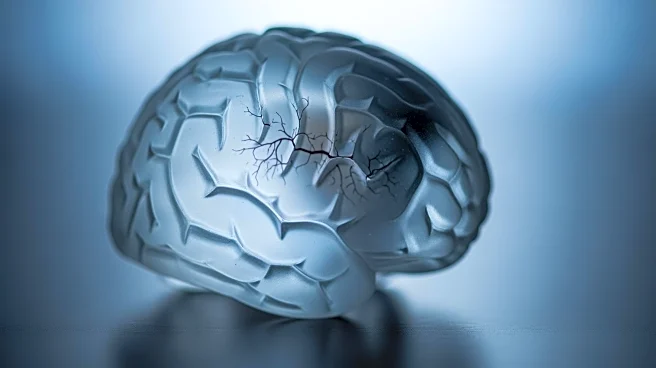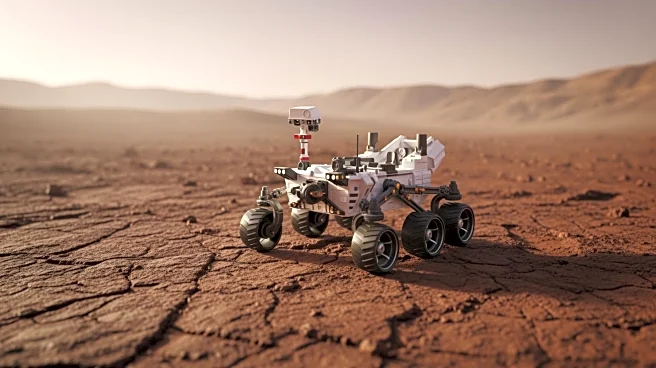What is the story about?
What's Happening?
A recent study published in JAMA Network Open has found a significant link between adherence to the MIND diet and a reduced risk of neuron loss in the hippocampus, a brain region crucial for memory and learning. The study analyzed data from 809 participants of the Rush Memory and Aging Project, who had no dementia at the start and provided annual dietary information over up to 18 years. Results showed that those who closely followed the MIND diet had a 22% lower chance of developing hippocampal sclerosis, a condition associated with dementia. The MIND diet emphasizes the consumption of leafy greens, berries, nuts, beans, whole grains, and olive oil, while limiting red meat, butter, and sweets.
Why It's Important?
The findings underscore the potential of dietary choices in influencing brain health and reducing dementia risk. As the U.S. population ages, dementia and related conditions pose significant public health challenges. The study suggests that adopting the MIND diet could be a proactive measure to maintain cognitive health, potentially reducing healthcare costs and improving quality of life for older adults. This research adds to the growing body of evidence supporting the role of nutrition in preventing age-related cognitive decline.
What's Next?
While the study is observational and cannot definitively prove causation, it highlights the need for further research into dietary interventions for cognitive health. Healthcare providers may consider incorporating dietary guidance into preventive care strategies for older adults. Additionally, public health campaigns could promote the MIND diet as part of a broader effort to combat dementia.
Beyond the Headlines
The study's focus on a predominantly non-Hispanic white cohort suggests a need for more diverse research to ensure findings are applicable across different populations. Furthermore, the MIND diet's emphasis on plant-based foods aligns with broader environmental and sustainability goals, potentially offering dual benefits for personal and planetary health.














